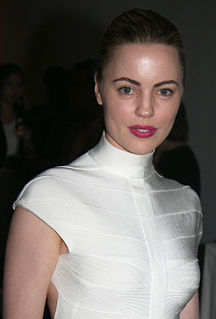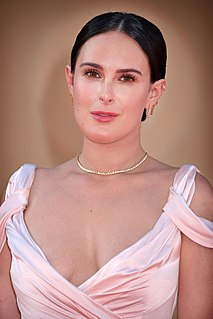A Quote by Jesse Eisenberg
There are some indications of how the character should behave based on the script, and then as actor makes it his or her own. I got to know one of the writers, Chris Terrio, and we were able to discuss things at length and figure out who this person is to create a real psychology behind what is, perhaps, in a comic book, a less than totally modern psychology. I can only say I've been asked to play an interesting role. A complicated, challenging person.
Quote Topics
Able
Actor
Asked
Based
Been
Behave
Behind
Book
Challenging
Character
Chris
Comic
Comic Book
Complicated
Create
Discuss
Figure
Got
Her
His
How
Interesting
Know
Length
Less
Makes
Modern
Modern Psychology
Only
Out
Own
Perhaps
Person
Play
Psychology
Real
Role
Say
Script
Should
Some
Than
Then
Things
Totally
Were
Writers
Related Quotes
I seem to have been cast several several times to do it. I think in this one, Phoenix is not purely evil. She was in the comic books at some point but the way the writers created her or we always talked about her, was that she was torn with her powers taking over and trying to control them at the same time. It was challenging to play which made it interesting for me to play this character.
When I started out as an actor, I thought, Here's what I have to say; how shall I say it? I began to understand that what I do in the scene is not as important as what happens between me and the other person. And listening is what lets it happen. It's almost always the other person who causes you to say what you say next. You don't have to figure out how you'll say it. You have to listen so simply, so innocently, that the other person brings about a change in you that makes you say it and informs the way you say it.
If you want to write about a person who isn't nice, people say, "This is a bad book. It's about somebody I couldn't stand." But that's not the point. You don't have to like a character to like a book. Most of the time, people would misjudge and say, "I didn't like the book." No, you didn't like the character. That doesn't make it any less interesting of a book. In fact, to me, it makes it more interesting.
At birth, the child leaves a person - his mother's womb - and this makes him independent of her bodily functions. The baby is next endowed with an urge, or need, to face the out world and to absorb it. We might say that he is born with 'the psychology of world conquest.' By absorbing what he finds about him, he forms his own personality.
You never know what you're in for when you take a role. When you're reading the script, you're in some café in New York and you're loving life and it sounds great because it's like reading a book. When you step into that book and you actually have to play it out, for real, it's a totally different ball game.
I do not invent characters. There they are. That's who they are. That's their nature. They talk and they behave the way they want to behave. I don't have a character behaving one way, then a point comes in the play where the person has to either stay or leave. If I had it plotted that the person leaves, then the person leaves. If that's what the person wants to do. I let the person do what the person wants or has to do at the time of the event.
One thing that you and I know is language. Another thing that you and I know is how objects behave in perceptual space. We have a whole mass of complex ways of understanding what is the nature of visual space. A proper part of psychology ought to be, and in recent years has been, an effort to try to discover the principles of how we organize visual space. I would say that the same is true of every domain of psychology, of human studies.
I have a lot to say about Mrs. [Hillary] Clinton that has not been said by others recently and that I think needs to be said. I mean I've known her for 40 years. I worked with her, I know her well professionally. I know her well personally. I know her to be a person of high moral character. A reliable person and an honest person, however Mr. [Donald] Trump may rant and rave to the contrary. So I'm happy to say that. People can make their own choices.
Much research in psychology has been more concerned with how large groups of people behave than about the particular ways in which each individual person thinks... too statistical. I find this disappointing because, in my view of the history of psychology, far more was learned, for example, when Jean Piaget spent several years observing the ways that three children developed, or when Sigmund Freud took several years to examine the thinking of a rather small number of patients.
Never open your story with a character thinking, I advise my students. As a further precaution, don’t put a character in a room alone – create a friend, a bystander, a genie, for God’s sake, any sentient creature with whom your main character can converse, perhaps argue or, better yet, engage in some action. If a person is out and doing, it’s more likely that something interesting might happen to her or him. Shut up in a room with only his thoughts for company well, that way lies fictional disaster.




































